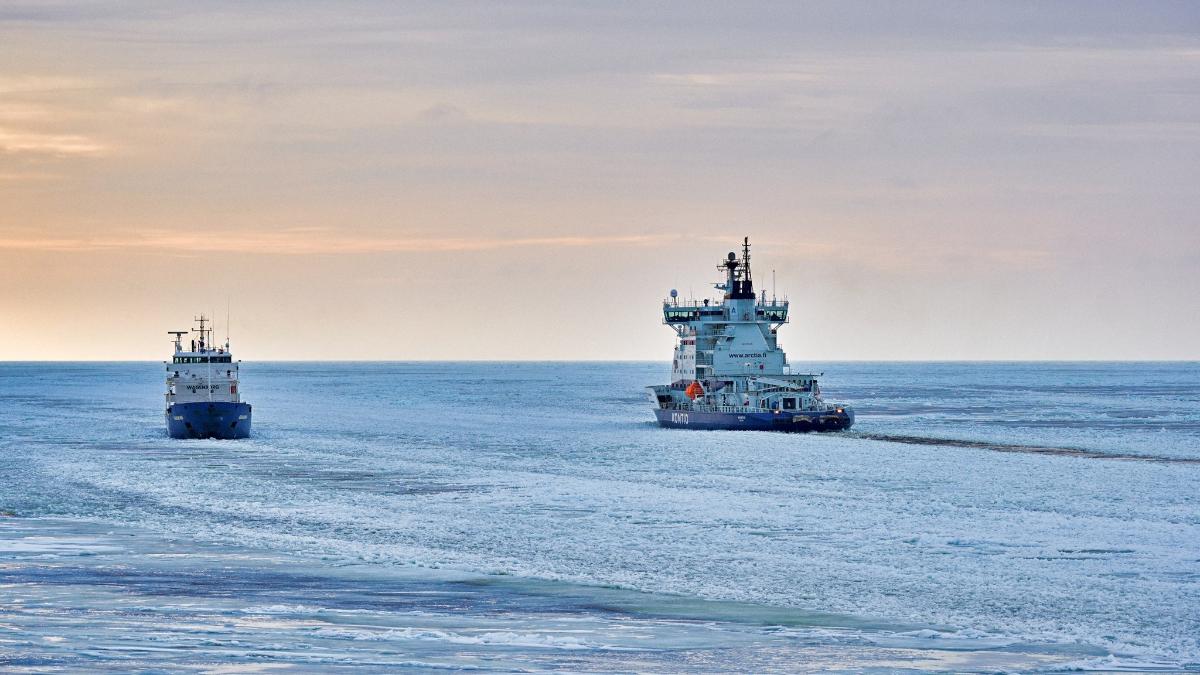IMO makes progress towards global action to reduce greenhouse gas emissions from shipping

The International Maritime Organization’s (IMO) Marine Environment Protection Committee convened in London on 18–22 March 2024. The committee’s 81st session discussed global action to reduce greenhouse gas emissions from shipping.
The topics discussed by the Marine Environment Protection Committee (MEPC) included ballast water regulation as well as restrictions on sulphur and nitrogen oxides in Arctic waters.
The goal of the International Maritime Organization (IMO) is to reach carbon neutrality of maritime transport by or around 2050, taking national circumstances into account.
By 2030, the greenhouse gas emissions of vessels must be reduced by at least 20% compared to the 2008 level, and the interim target set for 2040 is at least 70%. The IMO member states agreed in July 2023 that global action to reduce emissions in line with these targets must be adopted by 2025. The agreed measures would enter into force no later than 2027.
The session continued the discussions on legally binding action to cut emissions intended to achieve the targets within the agreed schedule. The session approved the main features of the upcoming regulatory framework, including any headings and subheadings in the MARPOL Convention under which future regulation is to be built.
Finland’s representatives in the discussions were pleased that the session had already reached making concrete changes to the Convention at the heading level. Finland also considers it a good outcome of the discussions that, in accordance with the proposals of the EU Member States, the draft includes a goal-oriented standard for ship fuels and a separate economic steering instrument.
The fuel standard would regulate the gradual reduction of the greenhouse gas content of marine fuels. An economic measure would be used to set a price for the greenhouse gas content of ship emissions, which would further encourage the transition to sustainable fuels and power sources.
Finland holds that an ambitious IMO emission reduction measure would even out the imbalance in international regulation of maritime emissions and the competitive environment of shipping and business between the EU and the rest of the world. Emission reductions in maritime transport should primarily be promoted through sufficiently determined international measures. If determined international action is taken, a significant double burden on EU actions will have to be prevented and dismantled.
Ice navigation and ice-strengthened vessels must be taken into account
Finland considers it important that ice navigation and ice-strengthened vessels
are taken into account in the emission reduction measures discussed in the IMO. If the IMO proceeds towards a global carbon content fee for fuels, Finland aims to allocate part of the proceeds of the fee to the development of solutions that reduce greenhouse gas emissions from ice-strengthened vessels and icebreakers.
Areas restricting sulphur and nitrogen oxides in Arctic waters
The session made an initial decision to establish areas restricting nitrogen and sulphur oxides (NOX, SOX) and particle emissions in Canadian Arctic waters and the Norwegian Sea in accordance with proposals made by Canada and Norway.
The preliminary decisions will significantly reduce the harmful effects of sulphur and nitrogen oxides on people and nature in the Arctic region. Amendments to international regulation for the establishment of these areas are scheduled for final adoption at the next MEPC session in September and October.
Regulation on ballast water specified
The session included preparing rules of procedure on ballast water, which is challenging to handle, and instructions for storing treated toilet water and grey water in the ballast water tanks of the vessel.
Ballast water that is challenging to handle refers to water taken onboard at a port whose characteristics render the vessel’s ballast water treatment equipment unable to handle the water in accordance with the requirements. This is a particular problem in the Baltic Sea, where ballast water taken onboard at a port may be highly turbid.
What next?
According to what was decided at this session, a special expert working group discussing the means of reducing greenhouse gas emissions will meet in London in July. The discussions on global emission reduction measures will continue at the meeting of the Intersessional Working Group on Reduction of GHG Emissions from Ships on 23–27 September 2024 and at the next MEPC session on 30 September–4 October 2024.
Inquiries:
Transport and Communications Agency Traficom:
Head of Delegation, Deputy Permanent Representative of Finland to the IMO, Senior Specialist Anita Mäkinen, tel. +358 40 162 4592, anita.makinen(at)traficom.fi
Ministry of Transport and Communications:
Eero Hokkanen, Chief Specialist, Deputy Permanent Representative of Finland to the IMO, tel. +358 50 476 0401, eero.hokkanen(at)gov.fi
Press release 15 March 2024: International Maritime Organization to negotiate ways to reduce greenhouse gas emissions
Press release 07 July 2023: The IMO sets more ambitious targets for reducing greenhouse gas emissions from international shipping